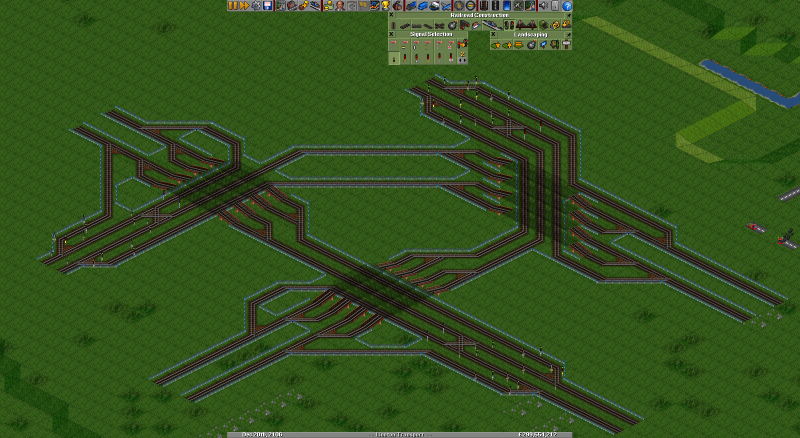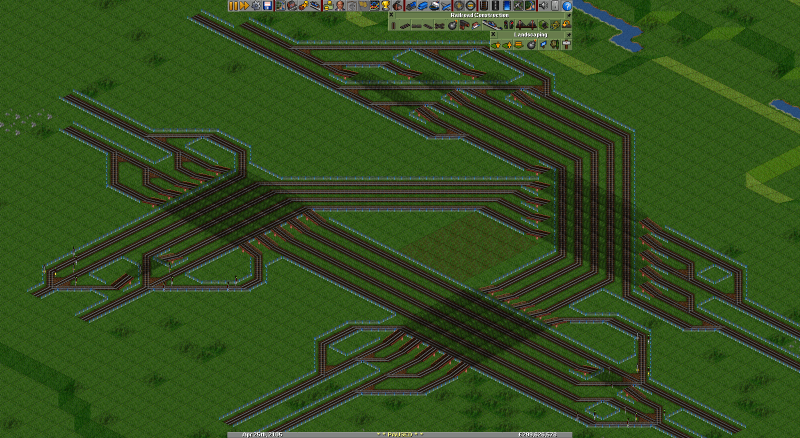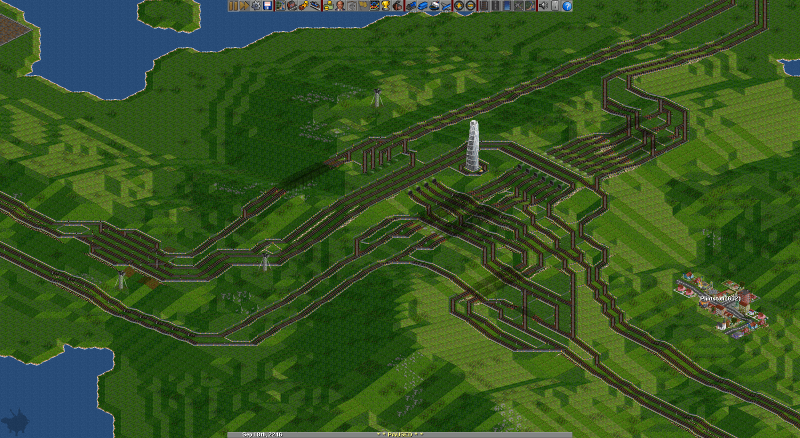Difference between revisions of "Pivot BBH"
From #openttdcoop wiki
Maqifrnswa (Talk | contribs) (Created page with "== Intro == In an attempt to reduce the number of bridges and crossings in a Backbone Hub, you can try something like a Pivot BBH where the traffic rotates around a centra...") |
Maqifrnswa (Talk | contribs) (→Additional Examples) |
||
| Line 11: | Line 11: | ||
== Additional Examples == | == Additional Examples == | ||
| − | Rather than having the tracks split and re-koim after crossing another line, you can keep them split and use the already split lines for a balanced merge. | + | Rather than having the tracks split and re-koim after crossing another line, you can keep them split and use the already split lines for a balanced merge. In the example below, the top exists are merged all-to-alll while the bottom and left exists are Inner Mix merges for the sake of demonstration. |
[[File:ROTATING-BBH-FULL.png|800px|thumb|none|Example of a Pivot BBH without rejoining]] | [[File:ROTATING-BBH-FULL.png|800px|thumb|none|Example of a Pivot BBH without rejoining]] | ||
Here is the first built example of a Pivot BBH from PSG 317 | Here is the first built example of a Pivot BBH from PSG 317 | ||
[[File:ROTATING-BBH-INGAME.png|800px|thumb|none|Example of a Pivot BBH]] | [[File:ROTATING-BBH-INGAME.png|800px|thumb|none|Example of a Pivot BBH]] | ||
Latest revision as of 05:02, 7 August 2016
Intro
In an attempt to reduce the number of bridges and crossings in a Backbone Hub, you can try something like a Pivot BBH where the traffic rotates around a central pivot point. For example, in the figure below, a LL_RR 3-way BBH is built using this concept.
Key Features/How to Build
As you can see above, the traffic rotates around the central area in a counter-clockwise fashion. Every input will first cross over one set of tracks, and then be crossed over by another set of tracks. During the first cross over, the input splits to send trains to both outputs.
- First, pick where the pivot will be, that is the center of the hub
- Then, choose any input. You will lay track from this input to the output of the hub TO THE LEFT of the input you choose. Lay the track so it passes to the right of your pivot point, then turn the track so it heads to the desired exit.
- Remember - all traffic must go counter-clockwise around the pivot!
Additional Examples
Rather than having the tracks split and re-koim after crossing another line, you can keep them split and use the already split lines for a balanced merge. In the example below, the top exists are merged all-to-alll while the bottom and left exists are Inner Mix merges for the sake of demonstration.
Here is the first built example of a Pivot BBH from PSG 317


